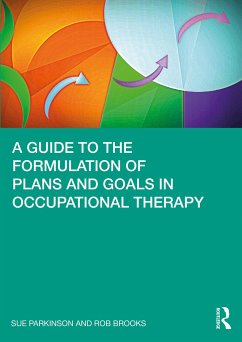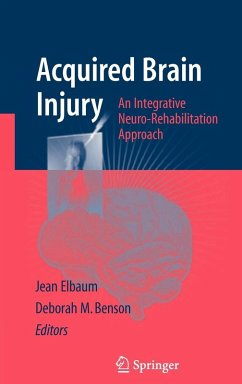
A Concise Guide to the Mental Capacity Act
Basic Principles in Practice
Versandkostenfrei!
Versandfertig in 6-10 Tagen
23,99 €
inkl. MwSt.
Weitere Ausgaben:

PAYBACK Punkte
12 °P sammeln!
This book provides a clear introduction to the Mental Capacity Act (MCA, 2005), offering an easy reference guide to the complex issues enshrined within the Act to inform the everyday practice of those who need to perform within its parameters as part of their day-to-day work.Bringing together clinical neuropsychology expertise with legal commentary, the book introduces the main principles and presumptions of the MCA (2005) and describes the processes involved in the comprehensive assessment of what can, in practice, be complex issues. It provides learning summaries, flowcharts, checklists and ...
This book provides a clear introduction to the Mental Capacity Act (MCA, 2005), offering an easy reference guide to the complex issues enshrined within the Act to inform the everyday practice of those who need to perform within its parameters as part of their day-to-day work.
Bringing together clinical neuropsychology expertise with legal commentary, the book introduces the main principles and presumptions of the MCA (2005) and describes the processes involved in the comprehensive assessment of what can, in practice, be complex issues. It provides learning summaries, flowcharts, checklists and web references for easy to access resources. The chapters also contain a broad range of illustrative case examples with considerable emphasis given to those areas of complexity that are not addressed in current guidance and which often prove contentious in everyday practice, such as how particular forms of brain injury can lead to hidden difficulties with decision-making which can be challenging to assess and evidence in practice.
The book is essential reading for trainee nurses, doctors, paramedics, social workers, lawyers, psychologists and health and social care support workers, as well as experienced health and social care professionals such as ward managers and care and nursing home managers who face mental capacity issues in their day to day working role.
Bringing together clinical neuropsychology expertise with legal commentary, the book introduces the main principles and presumptions of the MCA (2005) and describes the processes involved in the comprehensive assessment of what can, in practice, be complex issues. It provides learning summaries, flowcharts, checklists and web references for easy to access resources. The chapters also contain a broad range of illustrative case examples with considerable emphasis given to those areas of complexity that are not addressed in current guidance and which often prove contentious in everyday practice, such as how particular forms of brain injury can lead to hidden difficulties with decision-making which can be challenging to assess and evidence in practice.
The book is essential reading for trainee nurses, doctors, paramedics, social workers, lawyers, psychologists and health and social care support workers, as well as experienced health and social care professionals such as ward managers and care and nursing home managers who face mental capacity issues in their day to day working role.














